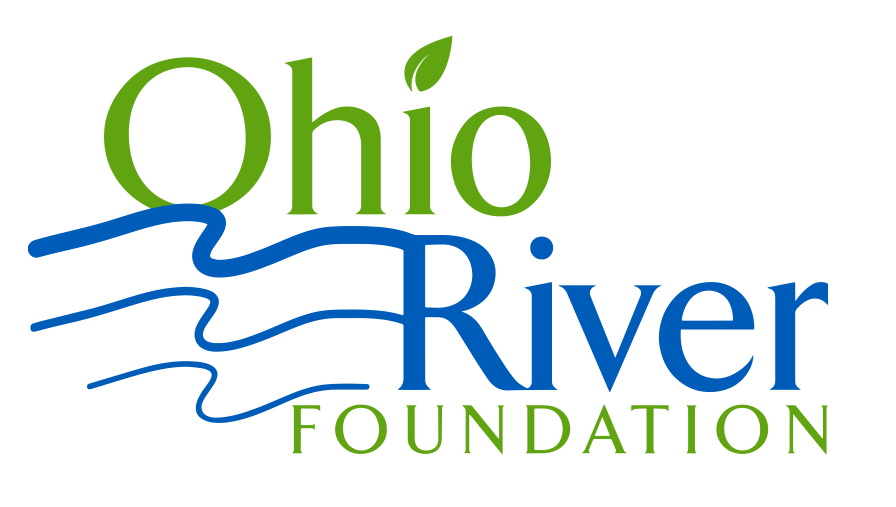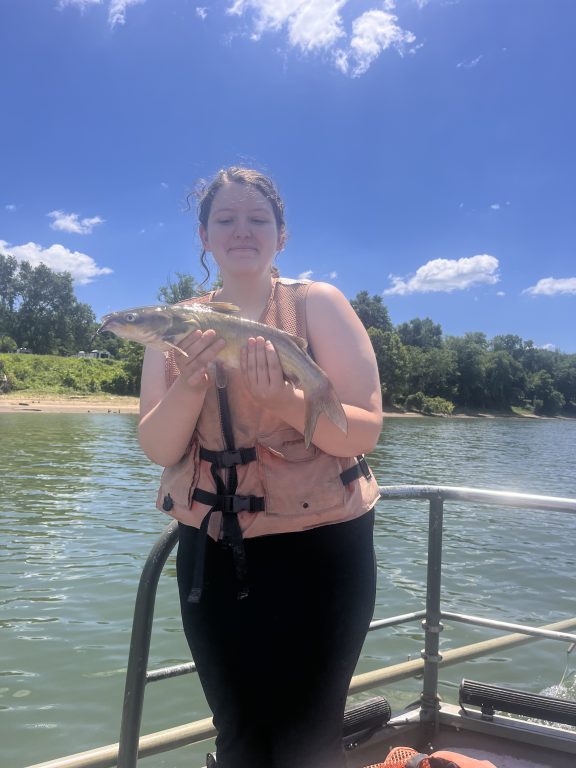This summer 13 greater Cincinnati area high school students participated in the Ohio River Conservation Course, an intensive week-long course about aquatic science and watershed conservation presented by Ohio River Foundation (ORF), Foundation for Ohio River Education (FORE), Northern Kentucky Sanitation District No. 1 (SD1), and Thomas More University Biological Field Station (TMU).
This summer course introduced students to a variety of aquatic-based conservation careers and taught them a variety of the scientific skills and methods professionals use in the field every day. Students were able to travel all over the Cincinnati area taking advantage of hands-on immersive opportunities designed to help them explore environmental science career paths in ecology, research, environmental engineering, water quality, and habitat monitoring.
The high school students from Ohio and Kentucky joined the organizations in five jam-packed days of rigorous learning and fun. Monday they waded into Banklick Creek in Kentucky and tested water quality, caught fish, and collected and categorized macroinvertebrates to assess the health of the creek. The students spent the next morning doing important invasive plant removal from the banks of Banklick Creek while learning about the importance of resilient native habitats and the connection to healthy water. Then they boarded a riverboat and cruised the Ohio River sampling the water for important scientific indicators of water health. On Wednesday the crew explored environmental engineering by visiting a local water treatment facility and an engineered wetland followed by a day back on the Ohio River electrofishing and exploring some of the amazing scientific research occuring in our region. The week concluded with a kayaking trip down the Ohio River.
The Ohio River Conservation Course
The course focused on career exploration, hands-on biological fieldwork, water quality-monitoring, habitat restoration, and networking with diverse professionals through a week of adventure exploring the Ohio River and its tributaries. Students took part in environmental field work and activities like collecting live specimens including fish and macroinvertebrates, testing water chemistry, electrofishing, removing invasive plants, and learned from dozens of local conservation professionals.The diversity of program collaborators ensured students had unique and varied perspectives on conservation work and practices each day. This hands-on experience not only exposed students to dozens of career paths in conservation but also encouraged the students to see what it takes to be an environmental steward.
To learn more about the Ohio River Conservation Course and collaboration, visit ohioriverfdn.org/education-programs/orcc. Applications for the 2025 Ohio River Conservation Course will open January 2025.

